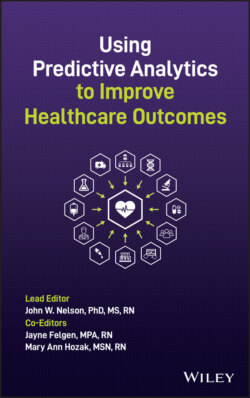Читать книгу Using Predictive Analytics to Improve Healthcare Outcomes - Группа авторов - Страница 71
Using Data to Bring Objectivity to Sensitive Topics
ОглавлениеSometimes data brings needed clarity to difficult subjects, such as tensions between doctors and nurses. It is not uncommon for nurses and doctors to have stressful relationships. As our data analyst colleague has seen time and again, this is often due to poor role clarity or poor system clarity in the independent, interdependent, and dependent functions of each role. The roles can overlap, and interdependence between nurses and doctors sets them up for tension if they lack role or system clarity in teamwork.
As you can imagine, simply announcing the reality that nurses in an organization or unit have said they are dissatisfied with their relationships with physicians would be counterproductive. When the data is understood in context, however, it can be used to facilitate some very helpful discussions and/or spur people to incorporate relationship‐building opportunities into their action plans. Presenting the data as it relates to commensurate scores in role clarity or system clarity can help facilitate discussions on how people from each profession experience (or would like to experience) teamwork, or to identify where specific tensions exist in clinical care. Such discussions have helped reveal opportunities for resolution.
In an organization in Scotland, when the scores showed strained relationships between nurses and physicians, their solution was to hold retreats where nurses and physicians got together to discuss issues, both professional and personal, in a safe and nurturing atmosphere. It was a relatively small action that yielded noticeable improvement. And, of course, people do not take such actions in order to achieve a better score on a report; it is to have the care that comes with better relationships become standard in the organization.
Without effective leadership, change will not occur. Leaders need to pay attention to what our data analyst colleague calls the “campfire experience”—the sitting‐around‐talking‐excitedly aspect of data—and harness the energy of it. It is important to understand what is going on with the team's excitement. Once that excitement is in place, we can ask more specific questions: Should I be examining effective or ineffective leadership? What could we examine that would be of highest value to the team? What action does the data suggest we should take first?
Without effective leadership, change will not occur.
Effective leadership can help staff members follow their excitement into a strategy.
Effective leadership can help staff members follow their excitement into a strategy.
